Part of the reflective exercise in week 17 was to look back at the A111 module learning outcomes we considered at the start of the course and specifically to reflect on the progress we've made in developing those skills we'd initially prioritised. The one learning outcome that I felt I'd not really reflected much on was the statement:
"You will recognise how the arts and humanities are relevant to issues of ethical, social and public concern"
So I thought I might try and structure some thoughts chapter by chapter...
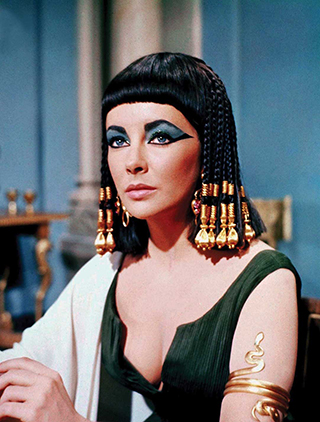 |
Cleopatra: An opportunity in this chapter to consider how contemporary representations of characters in media may tell us something about current preoccupations. The module considered how Cleopatra was presented in different films and TV shows and how this reflected concerns and priorities of the time. Whilst Cleopatra films aren't necessarily going to turn up on a regular basis, perhaps there's an opportunity to think about how powerful female leaders are shown in film and drama. |
|---|---|
 |
Mary, Mother of Jesus: A valuable module to reflect on links between Christianity and Islam (which I know very little about), and perhaps particularly on the way in which individuals might cross some 'boundaries' between the faiths in seeking intercession via Mary. Interesting to reflect on what makes Mary an active power in some people's lives and in the way in which she always seems to be in some form of tension between an officially sanctioned role and one developed from 'below'. |
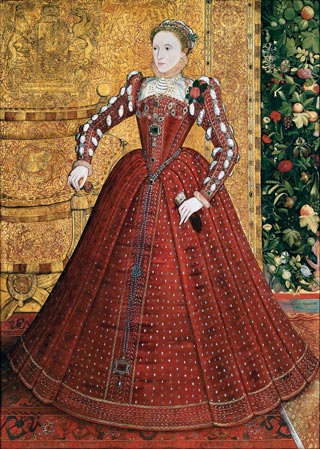 |
Elizabeth I: Plenty to think about here in the way in which images of power are created and the meanings they may contain - opportunities to think about whether there are contemporary parallels. Very interesting to study this around the time of Elizabeth II's death and the imagery mobilised then. Perhaps also worth reflecting on how 'succession' is best managed in other settings - what are the pro's and con's of naming a successor? |
 |
Mozart: The aspect of this chapter that made me think about wider relevance was the part touching on ideas of 'genius' and the 'sources' of whatever this is. Also a chance to reflect on the 'gendering' of genius and how such attributes may have been (are) considered when applied to women. |
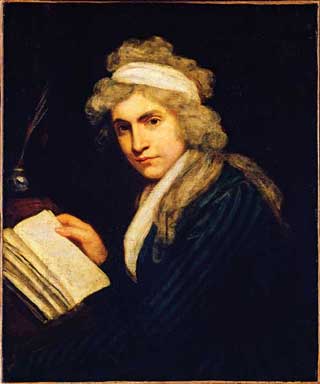 |
Mary Wollstonecraft: Lots to think about here in terms of her insights and philosophy on gender, development and power. Many aspects of her critique of male tyranny are sadly still of contemporary relevance. Plenty to consider about the nature of difference between the sexes, the extent to which it is real and the extent to which it 'matters' |
 |
Dickens and A Christmas Carol: Most of my reflections on contemporary issues prompted by this chapter are here. |
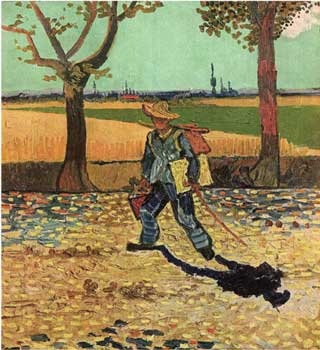 |
Van Gogh: I think this chapter, more than most, got me thinking about 'go back to the object' rather than relying on the peripheral 'knowledge' that you think you've accrued about someone/something - worth keeping in mind when considering contemporary artifacts. |
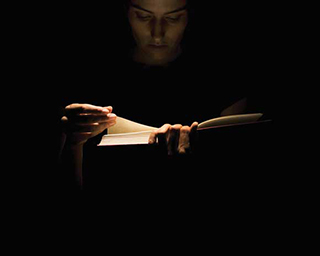 |
Academic Integrity: Generalisable points on 'truth' and 'opinion' and on the value of intellectual property. |
 |
Greek and Roman sculpture: Prompts to think about what contemporary artists/public figures may have to gain from associating their work with classical icons. Touched on some of the symbols of masculinity and how these may be used today. |
 |
The Blues: This chapter got me thinking about appropriation and so many of the issues around 'membership' and 'ownership' of different traditions. Inevitably dominated by issues of particular relevance to Black populations and of what has changed and what has not. |
 |
Writing Stories: The call to 'pay attention' seemed particularly relevant - to be engaged in an ongoing process of trying to closely observe the world and to try and let that observation inform your work. |
 |
Reading Poetry: Because the focus was on animal poetry this chapter encouraged me to think quite a lot about relationships between humans and animals - the deep challenge of anthropomorphism and the dominance of our human-centric perception. |
 |
Plato's Laches: Reflection on approaches to education and the extent to which 'knowledge' does require personal experience. Touched on 'Virtue Ethics' which I've heard about in medicine, but don't know enough about - something to look into. The discussion in Meno led to some reflection on the meaning of 'knowledge' and 'true opinion' in an online discussion on ChatGPT the latest open access AI platform. |
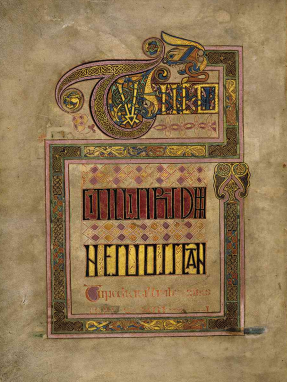 |
Remembering and Forgetting in Ireland: Thoughts about the importance that 'forgetting' may have in conflict resolution and the establishment of stable societies. Much of value in trying to understand contemporary challenges post-Brexit and important insights into the influences of the past on relations across the British Islands. |
| Christianity and its material culture: Plenty to think about in terms of how belief systems are reflected/incorporated into objects and materials. A reminder of how important such objects can be, also how there have been waves of destruction across time, interesting to think about what contemporary iconoclasm is going to look like - will we have a revolution against selfies and curated selves? |
|
 |
The revival of the Gothic tradition: One aspect of this which interested me was in the reflection of political values in buildings - the contrast between the power of basing buildings in 'the past' and perhaps of looking to other traditions - celebrating modernity or 'place' as the parliaments in Wales and Scotland look to do. What do civic buildings tell us about contemporary values? |
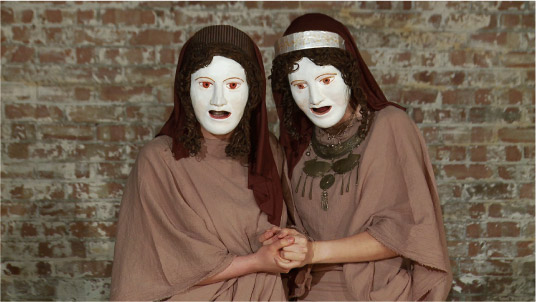 |
Antigone: This chapter really felt like a step up in terms of these learning outcomes on 'ethical, social and public concern' - much more of a feature across all of this book. Lots to think about regarding what 'leadership' involves and also the great difficulties that individuals and groups, who are actually not so far apart, can encounter. Found it fascinating to be casting Paul Simon as 'Antigone' when listening to him trying to justify 'ignoring' politics in making 'Graceland', instantly sympathised with 'Creon'! A big message here about compromise. |
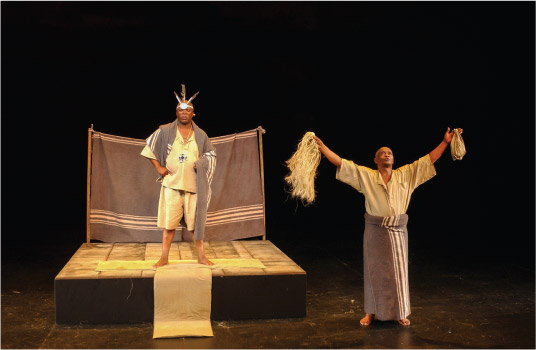 |
The Island: Both awful to have lived in the time of apartheid and amazing to have outlived it. The capacity for imagination and 'play' to sustain people at the worst of times came across here to me. Such an engaged piece of drama - wonder if it will eventually become a period piece, or whether it will spawn new versions, less embedded in South African history? |
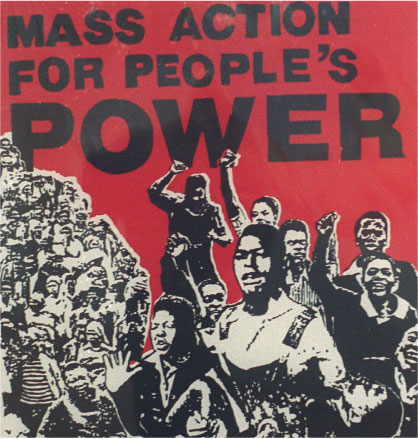 |
Music and protest in South Africa: Can't forget the description of prisoners singing before execution - so moving. Did make me think about what was the music of 'conformity' - how did Afrikaans music sustain their beliefs and values - would we find similarities or radical differences? |
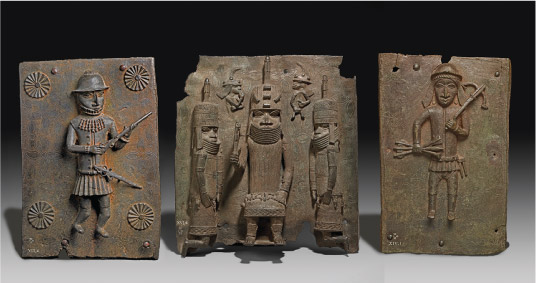 |
The art of Benin: 1400 to Present Day: Got me thinking and reading a lot about questions of post-colonial issues. These are such a core challenge in British culture at the moment, one of the main reasons for being interested in history. The considerations around repatriation of art are clearly complex, but I have no doubt that these objects should be largely returned to Africa. Thinking through this chapter has made me think about what a lot of work we still have to do as a culture to accept the damaging legacies of Empire. A big role for the arts and humanities in that work! |
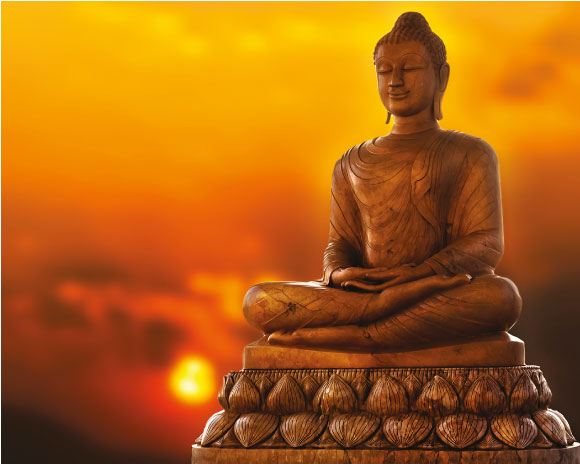 |
Buddhism in practise: This was perhaps the 'eye-opener' chapter for me - will be fascinating to see how the reception of Buddhism continues in the West. I learned a lot about the history and diversity of Buddhism - and the 'Very short...' booklet on Buddhist ethics was an interesting extension to what insights this could give on questions such as war and violence and reproductive ethics. |
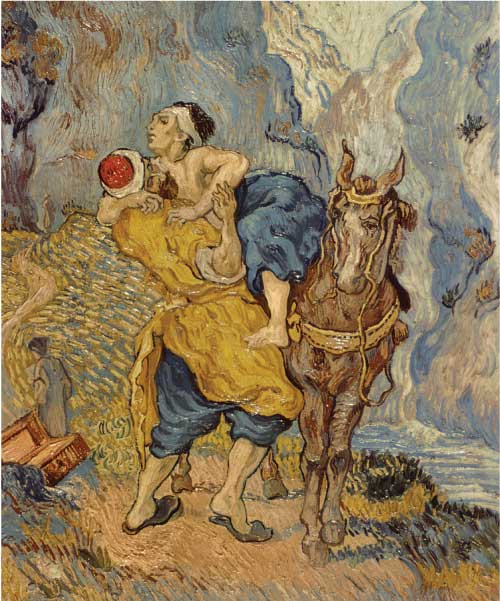 |
Philosophy and compassion: A bit baffling to work through Schopenhauer's metaphysics and the reasoning he applied to his views on compassion. I don't think I can live as a pessimist, but I think the chapter gave plenty of impetus to question unthinking optimism! Philosophical study is perhaps the most straightforward topic to think of 'applying', I was interested in the aspects of discussion around the 'burden' of compassion - do think there is something to be said for reflecting on the 'joy' that such actions can also bring. |